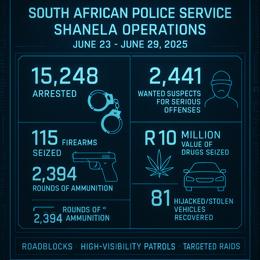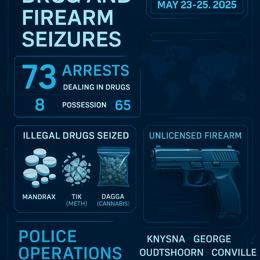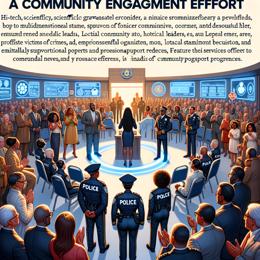Image created by AI
SAPS Forms Spark Controversy with Misunderstood Gender Options
In a move that attempts to embrace inclusivity but misses the mark, the South African Police Service (SAPS) introduced new case docket forms which conflate sexual orientation with gender identity. Marking a peculiar moment in administrative efforts to address diverse identities, Form 3M(a) presents South African citizens with eight gender options including Male, Female, Lesbian, Gay, Bisexual, Transgender, Intersex, or Queer.
SAPS spokesperson Athlenda Mathe confirmed the form's authenticity, stating it is to be filled out by the officer opening the case, recording personal details of complainants or victims. However, this blending of categories has caused confusion and backlash, considering that lesbian, gay, bisexual, and queer refer to sexual preferences, not gender identity.
😳🤣 Queering the pitch — SAPS gets into gender muddle - conflating gender identity with sexual orientation - on new case docket forms that provide eight options for gender: Male, Female, Lesbian, Gay, Bisexual, Transgender, Intersex or Queer. https://t.co/RnVKdGcUBL
— Pierre de Vos ⚖️ (@pierredevos) October 23, 2024
The form seems to have stemmed from SAPS's intentions to reflect diversity—a commitment highlighted in a January 2024 SAPS newsletter following a stakeholder engagement session for LGBTQIA+ and persons with albinism in Mpumalanga. Nonetheless, the lack of clarity on differentiating sexual orientation from gender highlights a critical area of misunderstanding.
Queer activist Matuba Mahlatjie, referencing government policy misapplication, and Luiz de Barros, spokesperson for OUT LGBT Well-being, have both criticized the forms for their amalgamation of disparate identities and concerns. While OUT LGBT Well-being sees the effort's positive intent, they advise discarding the forms, emphasizing engagement with LGBTIQ+ civil society organisations to avoid misinformation and stigma.
The urgency for correctly addressing these distinctions is underscored by the legacy of SAPS mistreatment of gay and trans hate crime incidents. With historical fears of police discrimination and contempt, a 2016 report by OUT LGBT Well-being revealed that a sizeable portion of the LGBTQIA+ community refrained from reporting abuses to the police. This history further accentuates the importance of well-informed and sensitively designed administrative practices.
Responses on social media, following the reveal of the form by TikTokker Troy Malange, ranged from amusement to concern, highlighting a public perception of SAPS's haphazard approach to inclusivity.
The revelation calls for a comprehensive review and realignment of SAPS procedures with the realities of gender and sexual diversity, underscoring the need for informed policies and training. Correct and sensitive administrative recognition of gender identity and sexual orientation is not only pivotal to the service's inclusivity but also to the protection of the rights and dignities of all South Africans.










